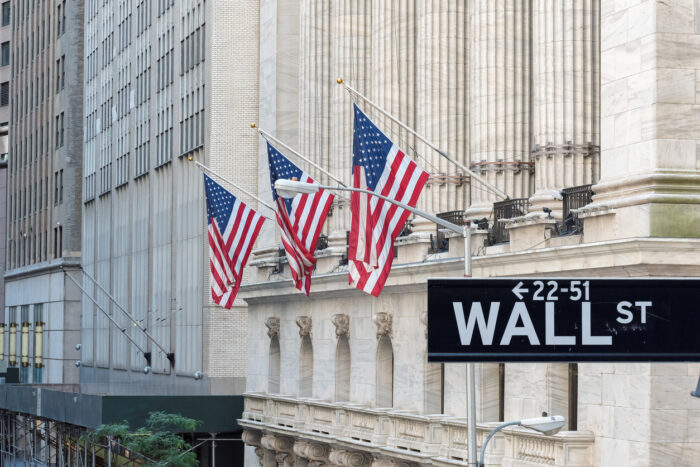How America influences Australia’s economy and property market
Published
November 12, 2024
Published
November 12, 2024

Which holds more sway over Australia’s economy: our own federal elections here in Australia? Or the US elections? It’s not without evidence that the US has a major impact on Australia, more than most Aussies think. And in some ways, the superpower forces bigger shifts in our property market and more head- and tailwinds in our economy than you might expect.
The relationship between the American and Australian economies is both intricate and significant with so many recent and historical events highlighting just how influential American political and economic shifts can be on Australia. And that’s the topic we’ll be getting stuck into today.
American influence on the Australian economy

Many Australian politicians are perhaps now regretting their publicised statements about the danger of Trump being re-elected—notably Roger Cook here in West Australia—because of the risk of alienating the US. We’re tied to the superpower in so many direct and indirect ways, and while our island nation can’t influence US monetary policy, political decisions or trade agreements, we can ensure a stable working relationship with America and, love him or hate him, the 47th President of the United States.
Given that the US is one of Australia’s largest trading partners, any major economic or political change in the US reverberates across global markets, including Australia.
Financial crises
The influence is particularly pronounced during times of financial turmoil or major policy shifts. For example, past US recessions have had a strong knock-on effect on Australia. Of course, the 2008 Global Financial Crisis (GFC)—sparked by the US subprime mortgage collapse—led to a downturn in the Australian economy despite its relatively stable banking sector. We avoided a recession, because of our robust economy and financial system, but Australia’s exposure to US financial markets and its reliance on global trade made it vulnerable to the ripple effects of the crisis.
Exchange rates
The US election is over, but that hasn’t stopped the Australian dollar from weakening. It saw 10-week lows, according to the Australian Financial Review, all because of nervous investors worrying about a severe economic cliff-drop with “the Donald” returning to the White House. It was trading at around US66c after four consecutive weeks of losses.
Australia-China relationship
Uncertainty around US-China trade relations thanks to the return of Trump—especially tariffs on Chinese goods—can (and has in the past) influenced Australian exports and commodities, with China of course being Australia’s largest trading partner.
Share market

During the 2016 US election, markets around the globe reacted sharply to the unexpected victory of Donald Trump. The ASX plummeted in response to initial global market reactions, more so than the results of nearly any Australian election, showing how US political outcomes can have immediate and drastic effects.
Four years later, the 2020 election also caused significant movements in the Australian dollar due to investor speculation on future trade policies and economic recovery plans under the new administration.
What’s the impact on Australia after the 2024 US election?
The 2024 US presidential election is another instance where American political events are shaping Australia’s economic outlook.
The outcome of this election has heightened market volatility, impacting investor confidence globally, from foreign exchange to cryptocurrency (Bitcoin saw two all-time highs thanks to Trump’s victory, hitting AU$123,114 on the weekend following the election).
Analysts have noted that US elections often sway Australian markets more than domestic elections. This is because US fiscal and monetary policies, such as interest rate decisions by the Federal Reserve or changes in trade policy, can directly affect the global economy. With Trump known for heavy-handed decision-making, both on domestic and foreign matters, it’s almost certain we’ll see these waves cross the Pacific and hit our shores.
America’s influence on Australia’s property market
The American economy’s trends often foreshadow similar patterns in Australia, especially in the property market.
The US housing market is a leading indicator for global property trends, and many Australian investors will follow their market closely to figure out the potential path our own market will take.

During the GFC, the downturn in the US housing market was an early signal of broader economic trouble, affecting property prices worldwide, including in Australia. As a result, more Aussie investors keep a close watch on US Federal Reserve policies, as interest rate changes in the US often set the tone for other central banks globally. When the Fed hikes rates, it usually leads to similar moves by the Reserve Bank of Australia (RBA), increasing mortgage costs and dampening property demand.
Real estate trends in the States—such as increasing demand for suburban and regional properties post-COVID—have been mirrored in Australia. America is seen as an early-adopter of trends (from technology to lifestyle), and the shift towards remote work and lifestyle changes in the US property market influenced similar moves in Australia, leading to a surge in regional property prices.
Sure, as the crow flies we are thousands of miles apart—but we’re far closer to the US than you might think.
What Australian property investors should watch for
Australian property investors often look at key indicators in the US to gauge potential future trends. These include:
- US interest rates: Changes in the US interest rates can influence the RBA’s decisions, affecting Australian mortgage rates and, consequently, the property market.
- US economic policy: Policies that boost or hinder American economic growth, such as fiscal stimulus packages or tax reforms, can affect global capital flows and investor sentiment, which may impact Australian property investment.
- Stock market volatility: High volatility in the US stock market, particularly around election periods, can shift investor focus towards safer assets like real estate, influencing both domestic and foreign property markets.
- Demand for land: When land parcels start going for higher price tags, due to a higher demand from those looking for cheaper investment options than established homes, it’s a sign that the same will happen in Australia. The significance of this? It’s a sign that investors have run out of capital to compete in a high-price tag property market. They’ll then turn to land, in the hope of entering the market, and that’s a clear indication that property prices are getting too hot for the market to handle. Next stop? Market downturn.
Australia’s economy and property market are of course influenced by a range of domestic factors. But the sway of American economic policies and political events is undeniable. With the 2024 election results still fresh, Australian investors and policymakers will be closely monitoring US economic strategies to anticipate possible impacts on domestic markets. As property investors, you should too.






